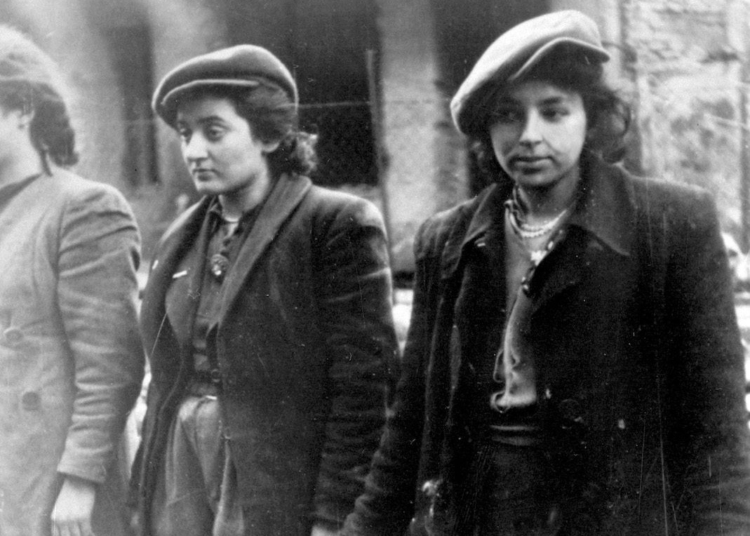The Warsaw Uprising was a 63-day armed resistance by the Polish Home Army against the German occupation forces during World War II. The Poles, who had suffered greatly under German oppression, hoped for Soviet assistance in liberating Warsaw but were let down when the Soviets halted their offensive outside the city. Despite being heavily outnumbered and outgunned, ordinary men, women, and children defiantly fought against the German forces. The German response was brutal, with massive destruction and loss of life. Although the Uprising gained international attention, the lack of significant aid from the Allies ultimately led to its tragic end. However, the Uprising remains a symbol of resistance and serves as a reminder of the indomitable spirit of the Polish people.
The Warsaw Uprising: Upholding Resistance and Defiance
Introduction
The Warsaw Uprising was a monumental event that took place during World War II in the Polish capital of Warsaw. It was an armed resistance by the Polish Home Army against the German occupation forces. Lasting for a total of 63 days, from August 1st to October 2nd, 1944, the Uprising was a remarkable display of bravery and determination in the face of overwhelming odds.
Background and Context
Poland had suffered greatly under German occupation since the start of World War II in 1939. Following years of oppression, discrimination, and persecution, the Polish people were determined to reclaim their freedom. The Polish Home Army, the largest resistance movement in occupied Europe, consisted of approximately 40,000 soldiers who waited for the right moment to launch an uprising against the German forces.
The Spark that Ignited the Uprising
The Uprising was triggered by the news that the Soviet Red Army was advancing towards Warsaw. The Polish underground hoped that the Soviet Union, their supposed ally, would lend assistance in liberating the capital from German occupation. However, their hopes were shattered as the Soviets halted their offensive just outside the city. Realizing that they were on their own, the Polish Home Army decided to take matters into their own hands.
The Unwavering Spirit of the Polish People
The Warsaw Uprising was a testament to the indomitable spirit and sense of patriotism among the Polish people. Ordinary men, women, and even children, armed themselves and participated in the fierce resistance against the German forces. Despite being heavily outnumbered and outgunned, the Poles fought valiantly, refusing to succumb to the oppression that had plagued their country for years.
The Brutal Suppression by German Forces
The German response to the Uprising was brutal and relentless. Adolf Hitler and his generals were determined to crush the resistance and make an example of Warsaw. They launched a massive assault on the city, using heavy artillery, tanks, and air raids to destroy the infrastructure and exterminate the inhabitants. The scale of the violence and destruction brought upon Warsaw was unimaginable.
International Reaction and the Role of the Allies
The Uprising quickly gained international attention, with many countries expressing support for the Polish resistance. However, assistance was limited, and the Uprising’s fate was ultimately sealed by the lack of significant aid from the Allies. The Soviet Union, despite their proximity and military strength, refrained from directly intervening to support the Poles, causing widespread bitterness among the resistance fighters and the Polish population.
The End of the Uprising
After 63 days of relentless fighting, the Warsaw Uprising came to a tragic end. With supplies depleted and the city in ruins, the Polish Home Army was forced to surrender to the Germans. Thousands of fighters were captured, while the survivors were either executed or sent to concentration camps.
The Legacy of the Warsaw Uprising
The Warsaw Uprising may not have achieved its immediate objective of liberating Warsaw, but it serves as a symbol of resistance and defiance against tyranny. It stands as a lasting testament to the unwavering spirit of the Polish people and their determination to fight for freedom, even in the face of seemingly insurmountable odds. The Uprising continues to be remembered and honored in Poland and serves as a reminder of the sacrifices made by those who fought for a free and independent nation.
Conclusion
The Warsaw Uprising remains a significant chapter in the history of World War II and a shining example of the human spirit’s ability to resist oppression. It serves as a reminder that even in the darkest of times, the flame of liberty can be kept alive through courage, unity, and unwavering determination. The heroes of the Warsaw Uprising will forever be remembered for their sacrifice and their fight for freedom.













